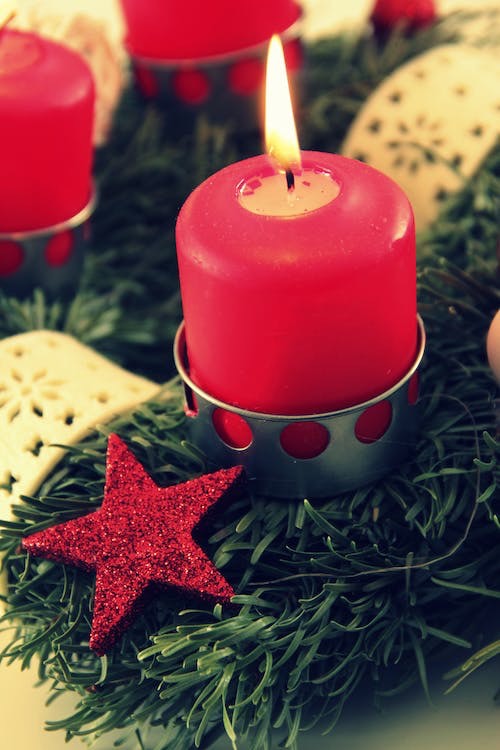Interfaith Insight - 2023
Permanent link for "Celebrating Christmas as a festival of light along with other traditions," by Douglas Kindschi, Founding Director of Kaufman Interfaith Institute, GVSU on December 18, 2023
Originally published December 26, 2018
There can be no doubt that we are in the holiday season. It is all around us, in television programs, store advertisements, shopping for presents, and holiday lights throughout the city and frequently on homes. Even those who do not send out Christmas cards often send out “Happy Holiday” cards. The dominant holiday in December is obviously Christmas but it is not the only religious holiday being celebrated this time of the year.
Earlier this month, our Jewish neighbors celebrated Hanukkah, often called the Festival of Lights. The festival celebrates the rededication of the temple following the defeat of the Syrian occupation in the second century B.C.E. The menorah was lit again but there was only enough oil for one day and yet the flame continued for eight days. This miracle led to Hanukkah being called the Festival of Lights.
Buddhists celebrate Bodhi Day. Often Buddhist homes will have a ficus tree they decorate with beads, ornaments, and multi-colored lights similar to the way Christians decorate Christmas trees. In November this year, Muslims celebrated the birthday of Muhammad and Hindus celebrated Diwali, which is also known as the Festival of Lights.
Many of these traditions use a lunar calendar for religious events that differs from the standard Gregorian calendar. Hence the celebrations are not always on the same day from year to year. Christmas is also not the same for those in the Eastern Orthodox tradition, which celebrates on Jan. 7. Actually, Christmas was not a part of the early church calendar since there was no mention in the Bible of the time of Jesus’ birth. Some theologians have suggested that the time was probably in spring, as suggested by references to shepherds and sheep in the Nativity story.
Picking the date in December is likely related to the Winter Solstice as well as the Roman holiday of Saturnalia, which was very popular in ancient times. Candles and torches represented the fading sun whose return would begin to bring new light. Evergreen plants and wreaths reminded people of the coming spring when green would again predominate. Gift giving was a part of the festivities.
But by the fourth century C.E., Western Christian churches settled on celebrating Christmas on December 25, with the declaration of Pope Julius I. This allowed them to incorporate the holiday with Saturnalia and other popular pagan midwinter traditions. Pagans and Christians co-existed (not always happily) during this period, and this likely represented an effort to convince the remaining pagan Romans to accept Christianity as Rome’s official religion.
Before the end of the fourth century, many of the traditions of Saturnalia — including giving gifts, singing, lighting candles, feasting and merrymaking — had become absorbed by the traditions of Christmas as many of us know them today. Many Christians also mark the season by lighting candles each of the four Sundays of Advent.
These festivals of light have different traditions and meaning in our culture. The victory of light over darkness also represents the victory of knowledge over ignorance and understanding over prejudice. The darkest day of the year can also be a time of renewal, expectation, and celebration.
Christians joined the festival spirit in celebrating Jesus’ Nativity. After all, Jesus said, “I am the light of the world. Whoever follows me will never walk in darkness but will have the light of life.” (John 8:12) In the Sermon on the Mount he even said to his followers, “You are the light of the world.” (Matthew 5:14) On this the darkest period of the year a celebration of light is most appropriate. Christians give gifts to each other representing God’s gift of the Christ child to the world.
Christians are sometimes critical that Christmas time has become too commercial and has lost the “true spirit of Christmas.” But maybe our increasingly secular society is just returning to the pagan style of trying to bring light and hope to the shortest day of the year.
Christians continue to celebrate the season of light along with their other religious neighbors. At this time of seeming darkness in the world and in our nation where fear, conflict and even violence are too prevalent, let us come together seeking understanding and peace. Knowledge of other traditions and getting to know others who celebrate differently helps us come together as community. Interfaith understanding does not mean that all religions are the same or that the differences do not matter, but it does mean that we recognize our common humanity and pursue “peace on earth and goodwill to all.” Let this be our commitment.


